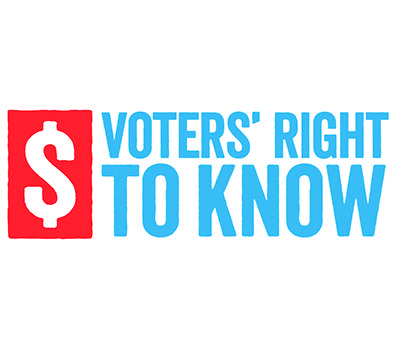In response to the insurmountable obstacles that COVID-19 has created for citizen-initiated ballot measures, VRTK Executive Director Jay Costa and Steering Committee Member Daniel G. Newman have co-authored the following opinion piece.
Petitioning in the time of pandemic: a call for electronic signature gathering
By Jay Costa and Daniel G. Newman
The ability of American states to serve as laboratories of democracy is vital to the health of our nation. Particularly in the face of unprecedented federal gridlock, states are the engine of critical progress on the policies that everyday Americans need most. Now, in the face of pandemic, one of the most reliable mechanisms of state-level policy change is under existential threat–but it’s not too late to save it.
Over the past century, citizen-initiated ballot measures have been one of the most effective ways to achieve state-level policy change, allowing the people to directly propose and vote on changes to their state laws and constitutions. They have been used to advance notable people-centered reforms including women’s suffrage, voting rights, the right to marry, living minimum wages, clean energy, and affordable healthcare. 24 states have a system of citizen-initiated ballot measures, accounting for more than half of the U.S. population.
To appear on a state ballot, citizen-initiated measures must prove they have a baseline of popular support by collecting petition signatures from a certain number of registered voters, which are then counted and verified by state election officials. Historically, states have not allowed for the gathering of electronic signatures. So in practice, this means a petitioner must interact with prospective signers face to face, hand them a pen and a printed copy of the petition, and ask them to sign the petition and hand it back — a process that is repeated until all of the signature lines on the petition are filled up.
Even before COVID-19, this process of qualifying a measure for the ballot was onerous, necessitating an army of petitioners working tirelessly for months, relying on public gatherings, events, and commerce centers to provide access to the hundreds of thousands of voter signatures needed to qualify. It is a process that privileges well-heeled special interests, who can pay professionalized signature-gathering firms millions of dollars–sometimes more than $20 per signature–to run their petition campaigns. Nonetheless, despite its shortcomings, ballot qualification has been a mainstay of public-interest policymaking, giving citizen activists a well-defined pathway for achieving popular change.
But with the pandemic, the ballot petition process has broken down entirely. Physical petitions have become vectors of infection, so grassroots access to the ballot has become impossible. Campaigns that just weeks ago were poised to bring critical reforms before voters have been stopped dead in their tracks. Some of the policies that voters will be deprived of a chance to weigh in on include automatic voter registration, outlawing “dark money” political spending, and raising the minimum wage for hospital workers in Arizona; an independent redistricting commission in Arkansas; an improved renewable energy standard in Montana; criminal justice reform and gun safety in Oregon; medical marijuana and education funding in Idaho; marijuana legalization in North Dakota; and criminal justice reform in Oklahoma. But now the risk to both signers and petitioners is too great to proceed with these ballot campaigns, and the reforms that they had the potential to shepherd in are stuck.
On average over the last decade, more than 50 state measures reach the ballot in a given election cycle. So far there are a total of 14 citizen-initiated ballot measures qualified across the US for the 2020 ballot — and given the current circumstance it looks unlikely that this number will increase substantially.
Beyond the wasted time, energy, and money of the citizen activists behind these measures, and the missed opportunity to advance people-centered policies, what makes this situation particularly tragic is that citizen-initiated ballot measures are an unnecessary victim of the pandemic. In an age when there’s an app for nearly everything — and it’s possible to conduct highly sensitive transactions such as filing taxes, registering to vote, applying for a mortgage, wiring money, viewing medical records, and more online — states should allow for the submission of electronic signatures as part of the ballot petition qualification process.
The software to do this is readily available. The nonprofit organization MapLight has made a public offer to install secure, open-source signature collection software free-of-charge for governments that wish to move forward with digital signatures for ballot measures. Bringing signature gathering for ballot measures into the modern era will not only keep our democracy resilient in 2020, it will protect a key asset in our nation’s ability to keep moving forward on important issues and set us up for greater democratic participation for years to come.
—
Jay Costa is executive director of Voters’ Right to Know. Daniel G. Newman is president of MapLight and the author of “Unrig: How to Fix Our Broken Democracy” (worldcitizencomics.com).


